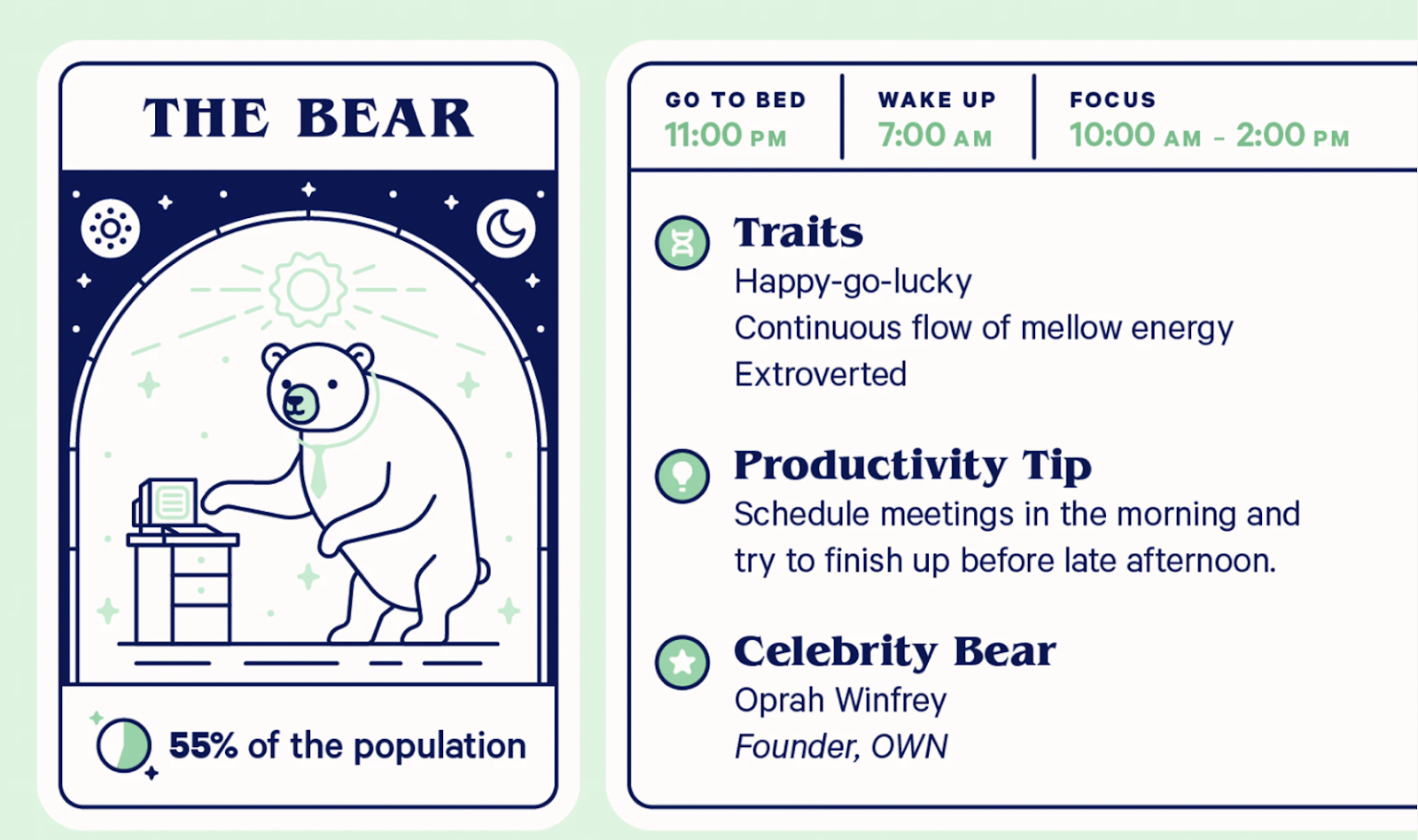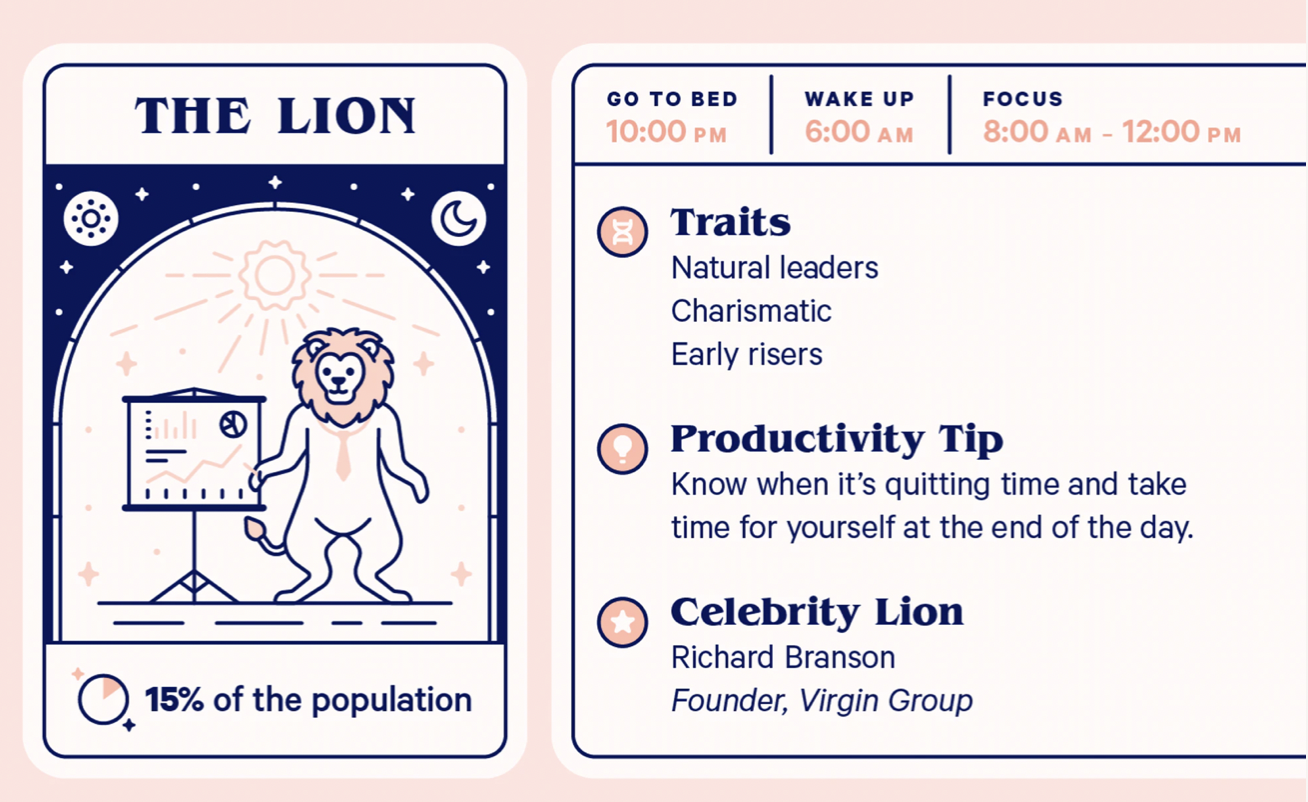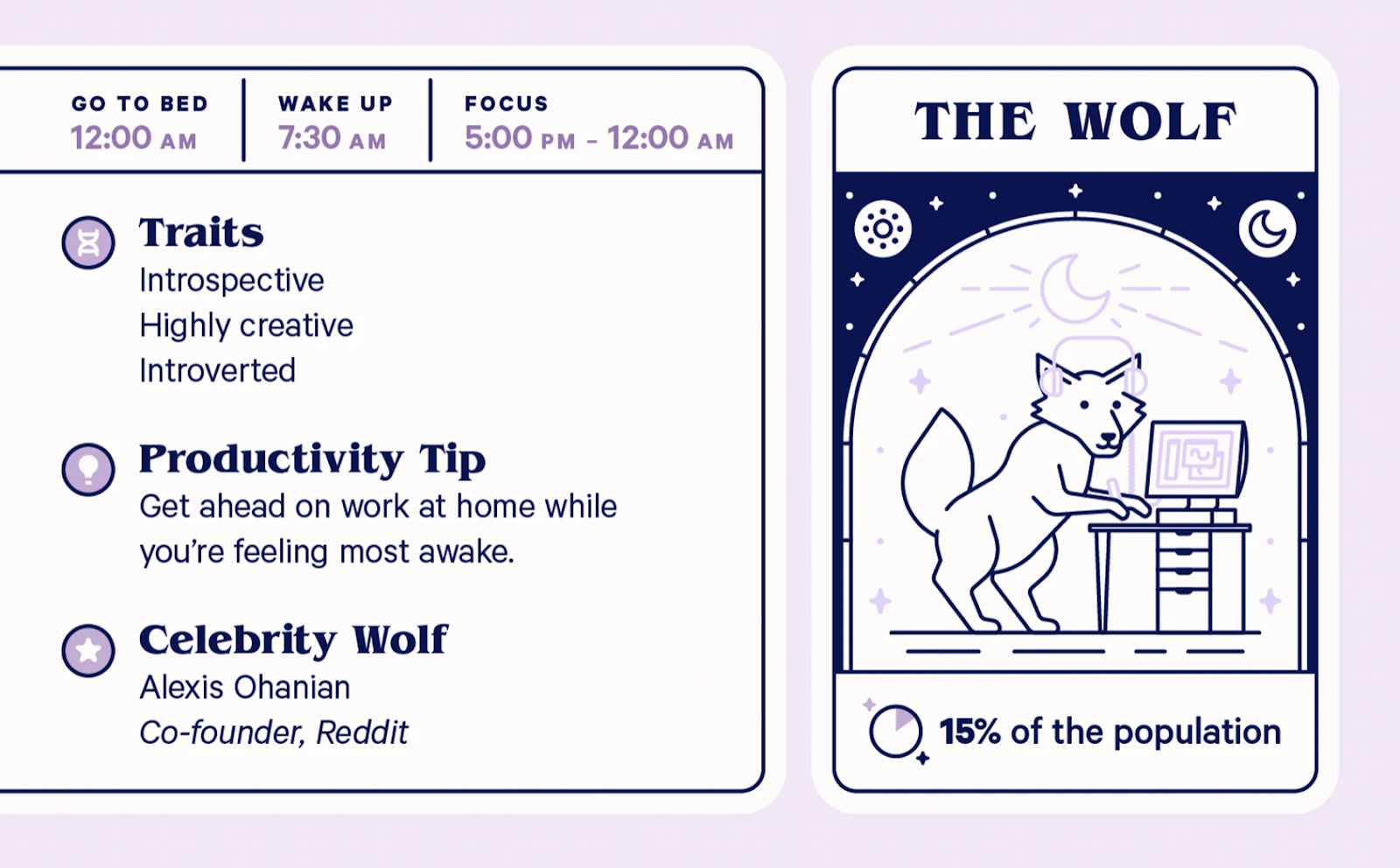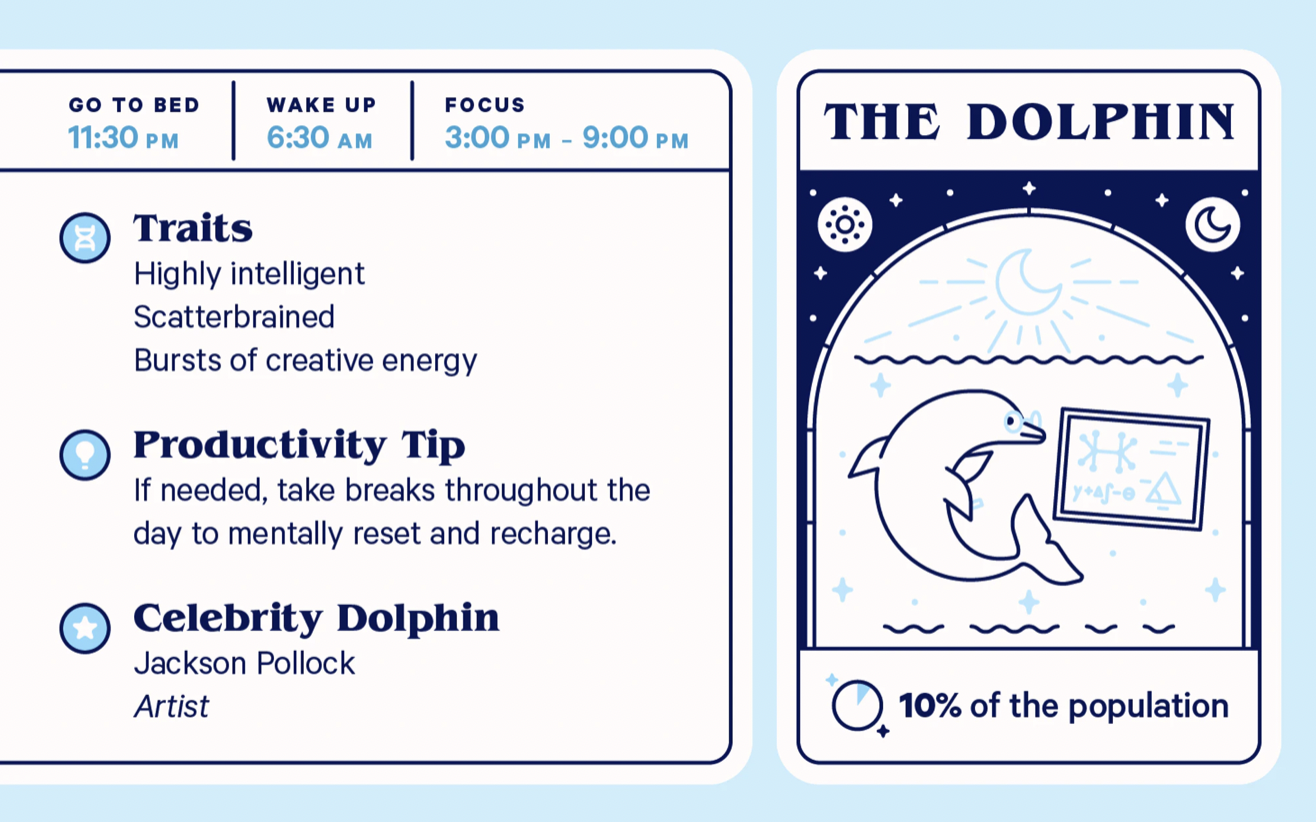
Achieving a better night of sleep can not be guaranteed, considering 35% of Canadians report problems falling asleep every night. By following a few easy tips, you should see improvements in your sleep! Sleep plays an important role in our overall physical health, it is essential for helping a person maintain optimal health and well-being.
In this post you will discover 3 different ways to improve your sleep, from exercising daily, understanding your chronotypes, or even the temperature in your bedroom. The following are some of the many approaches that health professionals associate with getting a good night’s rest.
Here’s your quick and easy guide for better sleep.
Exercise Regularly to Improve Sleep
Exercising regularly has 2 main benefits that help influence a better night's rest. First is eliminating the symptoms of insomnia that enable us to fall asleep faster, sleep longer, and enjoy better sleep quality. Insomnia is strongly correlated with mental illness and poses an additional risk for depression as well as suicidal ideation and behavior. With a bit of exercise daily we are able to eliminate some of these symptoms.
Second is related to our circadian core body temperature, which can be regulated with proper exercise. For those who have difficulty initiating sleep (DIS) or tend to have early morning awakening (EMA), all of these symptoms are associated with our circadian core body temperature which we can regulate with proper exercise.
Furthermore, regular daytime exercise, according to one 2018 study, has been shown to increase the melatonin production- which we know is a big deal for getting to, and regulating sleep.
To help you decide which time window to workout, take the “Quiz morning or evening?”: The optimal workout schedule for you.
Know your Chronotype
Your chronotype impacts every part of your life, from the best time to fall asleep, exercise, schedule in a big meeting at work, and even the best time to be intimate with your significant other. What is a chronotype? It is a researched biological programming that includes different categories to indicate the most optimal times for individuals to perform different tasks.
There are four types of chronotypes - lion, bear, wolf, and dolphin -- and each has its own distinct characteristics. Instead of fighting your body's natural rhythm with a sleep schedule that doesn't work, its best to work with your natural chronotype.
The Bear Chronotype

Bears best work during the morning and start to lose steam after lunch. If you’re a bear, it’s advised to try and ease into the day and ease out of it.
The best time to schedule important meetings for a bear is mid-morning, and anything after lunch should include easier tasks that require less intense thought and creativity.
Their ideal schedule looks like:
- 7 am - 8 am: Wake up
- 10 am - 2 pm: Focus on deep work
- 2 pm - 4 pm: relax and unwind
- 10 pm - 11 pm: Get ready for bed
- 11 pm - 7 am: Sleep
The Lion Chronotype

If you fall into this group, it’s essential to get all pressing tasks done in the early hours and avoid big meetings in the late afternoon, if at all possible. To help keep energy flowing in the later parts of the day, full nights of sleep should be a priority for those in this group, along with a dedicated bedtime routine each night to signal to your body that it’s time for bed.
Their ideal schedule looks like:
- 6 am – 7 am: Wake up
- 8 am –12 pm: Focus on deep work
- 12 pm – 4 pm: Focus on lighter tasks
- 4 pm – 9 pm: Daily unwind and relax
- 9 pm –10 pm: Get ready for bed
- 10 pm – 6 am: Sleep
The Wolf Chronotype

Wolf chronotypes are most productive at night. If you’re a wolf, try to avoid scheduling early high-stakes pitches, creative briefs, and other important meetings. It takes a while for this group to wake up and get going, with a peak in the later part of the day. Late afternoon and into the night is when the best work is done by wolves.
Their ideal schedule looks like:
- 7:30 am - 9 am: Wake up
- 10 am - 12 pm: focus on lighter tasks
- 12 pm - 2 pm: Complete deep or creative work
- 2 pm - 5 pm: Focus on lighter, less intense tasks
- 5 pm - 9 pm: Engage in creative tasks
- 9 pm - 10 pm: Unwind from the day
- 10 pm - 12 am: Prepare for bed
- 12 pm - 7:30 am: Sleep
The Dolphin Chronotype

For a dolphin, creative sparks can hit randomly throughout the day and it’s important to take advantage of them. When it’s time for bed, this type should unwind and avoid distractions that could keep them from getting shut-eye, considering it’s generally difficult for this group to sleep.
If you identify with the characteristics of a dolphin, your ideal schedule looks like:
- 6:30 am – 7:30 am: Wake up
- 8 am – 10 am: Engage with easy to-do’s
- 10 am – 12 pm: Focus on demanding tasks
- 12 pm – 4 pm: Complete less demanding tasks
- 4 pm –10 pm: Relax, unwind from the day
- 10 pm – 11:30 pm: Prepare for bed
- 12 pm – 6:30 am: Sleep
If you're curious as to which chronotype best fits you, there are numerous quizzes you can take to help you narrow down to one specific type. “The power of when” is a quiz based on the foundings of psychologist and board-certified clinical sleep specialist Michael Breus, Ph.D., makes in his book The Power of When: Discover Your Chronotype — and the Best Time to Eat Lunch, Ask for a Raise, Have Sex, Write a Novel, Take Your Meds, and More.
Turn down the Thermostat
Hot temperatures get in the way of quality sleep in a number of ways. One issue is that when it's hot, research shows you are more likely to get up during the night - which impacts sleep efficiency and making it tougher for your body to properly complete its sleep cycles. Hot temperatures also decrease the time spent in REM sleep, REM sleep has been shown to help with memory consolidation and regulating mood.
Another addition to staying cool at night is that it triggers brown fat (a special type of body fat that is activated when you get cold). Brown fat produces heat to help maintain your body temperature in cold conditions.
To wrap things up
Sleep can often be neglected but is a vital component of every person's overall health and well-being. Sleep is important because it allows our body to get the proper rest it needs to be fit and ready for the next day. Getting adequate rest can help regulate our mental health, and improve our overall daily performance. Try these different tips and see which ones work best for you!
References:
Banno, M., Harada, Y., Taniguchi, M., Tobita, R., Tsujimoto, H., Tsujimoto, Y., . . . Noda, A. (2018, July 11). Exercise can improve sleep quality: A systematic review and meta-analysis. Retrieved December 24, 2020, from https://www.ncbi.nlm.nih.gov/pmc/articles/PMC6045928/
Baglioni, C., Battagliese, G., Feige, B., Spiegelhalder, K., Nissen, C., Voderholzer, U., Lombardo, C., & Riemann, D. (2011). Insomnia as a predictor of depression: a meta-analytic evaluation of longitudinal epidemiological studies. Journal of affective disorders, 135(1-3), 10–19.
Breus, M. J. (2020, June 28). 5 Essential Sleep Tips to Help You Sleep Better Tonight. Retrieved December 24, 2020, from 5 Essential Sleep Tips to Help You Sleep Better Tonight
C. (2020, November 4). How To Find Your Chronotype To Improve Your Sleep and Productivity. Retrieved December 24, 2020, from https://casper.com/blog/chronotype/
Pacheco, D. (2020, December 11). Exercise and Insomnia: Can Physical Activity Combat Insomnia? Retrieved December 24, 2020, from https://www.sleepfoundation.org/insomnia/exercise-and-insomnia
Teo, W., Newton, M. J., & McGuigan, M. R. (2011). Circadian rhythms in exercise performance: implications for hormonal and muscular adaptation. Journal of sports science & medicine, 10(4), 600–606.
Book a call with our Wellness Coordinator to learn more







